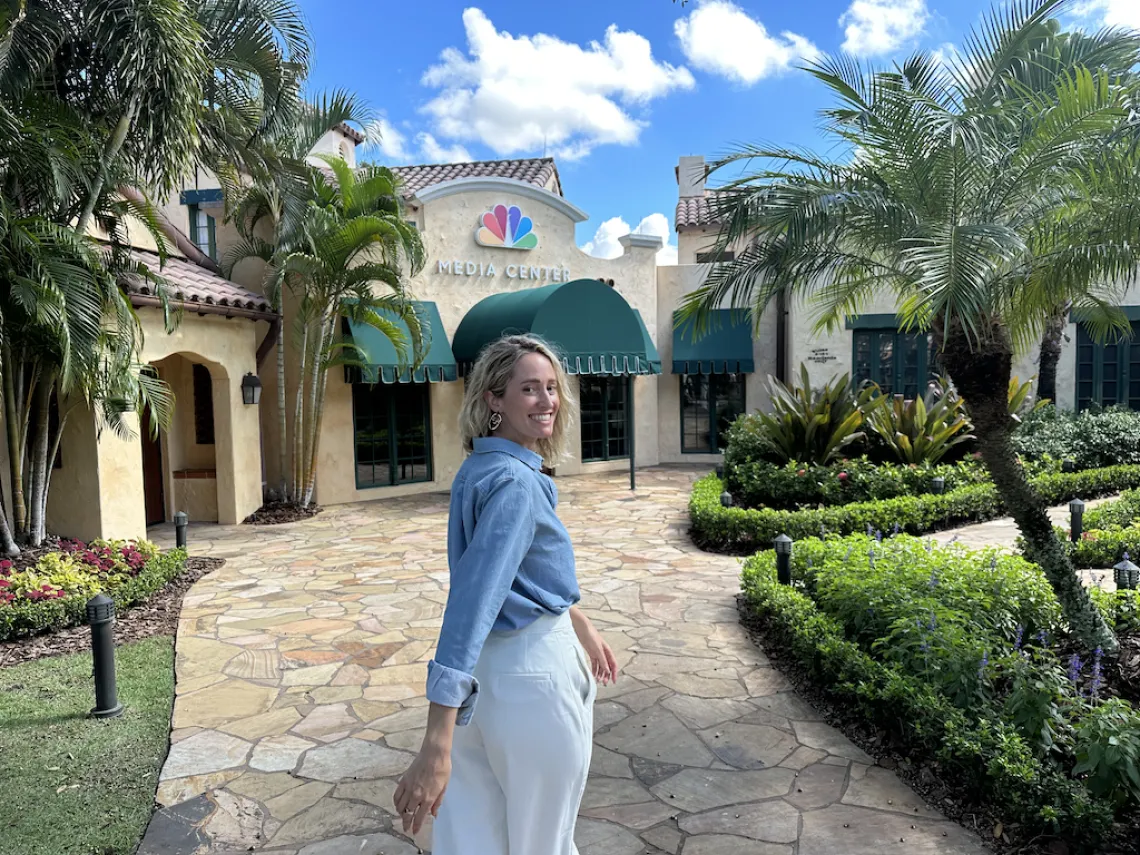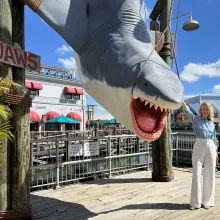Industry Stories: Q&A with Alumna Mary-Caitlyn Valentinsson

Mary-Caitlyn Valentinsson
Mary-Caitlyn Valentinsson earned her Ph.D. in anthropology and linguistics in a joint program from the University of Arizona in 2019. Her dissertation research was on fandoms, or, the way communities engage with pop culture. After finishing her doctoral degree, she taught at Appalachian State University for three years. In August 2022, she took a position with Universal Parks and Resorts in Orlando, Florida, where she works as a manager of ethnographic research. Here, she talks about making the pivot to industry work.
As a manager of ethnographic research at Universal Parks & Resorts, what do you do?
I do a ton of different things and it is a pretty unusual role. Essentially, my job is to put the methods of anthropology and linguistics together so I can step into someone else’s shoes and see the world from their perspective. It can be very complex. For instance, in designing a super immersive queue or, line to wait for a ride — just because it seems like a really cool design doesn’t necessarily mean it is going to feel intuitive to use or make sense to the people who are visiting the park here in Florida. As a visitor, you can probably imagine that it is 100 degrees and 90% humidity, you have two kids with you and maybe you are stressed out. My role is to bring that perspective to all the different decision-making and operational areas of the park — to make sure the guest perspective is accounted for and understood.
What made you decide to switch from academia to industry work?
I was really committed to an academic career. But as you spend more time on the academic job market, you start to get curious about other opportunities. I can imagine a different kind of path where I stayed in academia and was just as happy, but I saw a non-academic opportunity that was unusually aligned with my methodological training and the thematic focus of my research, which is something I think a lot of people feel they have to change or give up.
This job was a huge surprise. A friend of a friend sent me this job listing and said, “I know you researched media and pop culture and you have all this training in linguistics and anthropology. This job sounds like what you know how to do.” I thought, how hilarious would that be if I got a job at a theme park? Let me just apply and see what happens. A month later I was signing an offer letter.
How did the UArizona joint program of anthropology and linguistics prepare you for this role?

Credit: Mary-Caitlyn Valentinsson
To begin with, both the anthropology and linguistics departments are two of the top-ranked departments in their respective fields. Put them together and they are a real superpower — both departments are skilled in teaching their students how to tackle complex and nuanced problems. This gave me the self-confidence to realize I might not know the answer right away, but I can be thrown into a weird situation and use my anthropological training and linguistic skills to unravel the tangles and figure out what’s going on. Because of my training, I know how to launch myself into the deep end of a sticky problem, sort out what is happening and explain it in a way that makes sense to leaders and decision-makers.
What advice do you have for the academic who is ready to jump into work and wonders about an industry job?
When I applied for this job I was a pretty good fit, but there were some things I didn’t have, such as the corporate work experience that might have been ideal. But I put my application portfolio together thinking, I’m an expert in this stuff and any reasonable person could see that. In a way, I had to assess the job market with a bit of delusional self-confidence.
I would say that as an academic, you are trained to be fairly moderate with the claims you make. You don’t want to overstate a claim about findings or research, and you want to be quite certain to have a strong grounding in your data. That said, you cannot take that same approach when you are selling yourself as an asset to a company. You must find a way within your comfort zone to frame yourself as the hottest stuff out there and it would be foolish to pass up on a candidate like you. In other words, now is the time for delusional self-confidence!

